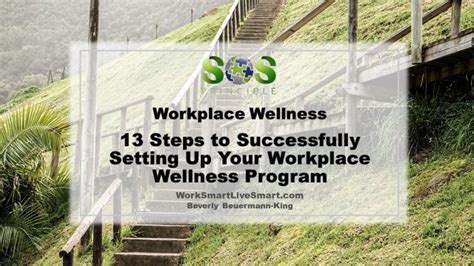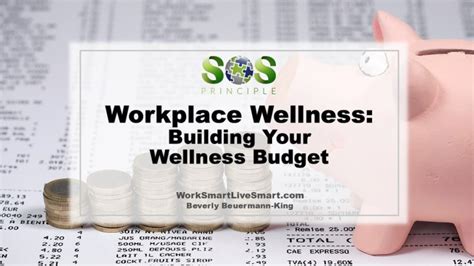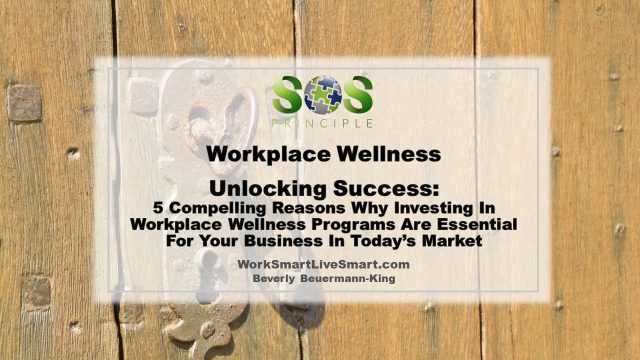In today’s fast-paced professional world, unlocking growth and success requires more than just technical skills and hard work. True professional development stems from a holistic approach that balances the mind, body, and spirit. By integrating mindfulness and well-being strategies into your daily routine, you can not only enhance your focus and productivity but also achieve a sustainable work-life balance that fuels long-term success. This article explores key practices such as mindfulness, goal setting, continuous learning, and stress management, all designed to help you navigate the complexities of the modern workplace. Discover how these strategies can empower you to reach your full potential while maintaining a positive mindset and healthy lifestyle.
Join terylblog.com as we delve deeply into this topic.
1. Mindfulness Practices: Incorporate daily mindfulness exercises to improve focus and reduce stress.
Incorporating mindfulness into your daily routine is a powerful way to enhance focus and reduce stress, both of which are essential for professional growth. Mindfulness practices, such as meditation, deep breathing exercises, and mindful walking, allow you to stay present in the moment and maintain clarity even in high-pressure situations. By dedicating just a few minutes each day to these exercises, you can train your mind to better handle distractions and respond calmly to challenges. This heightened state of awareness not only improves your ability to concentrate but also helps in managing stress, leading to a more balanced and productive work life. Over time, consistent mindfulness practice can foster a greater sense of well-being, enabling you to approach your professional goals with renewed energy and resilience.

2. Goal Setting: Establish clear, achievable professional goals aligned with personal values.
Setting clear and achievable professional goals is a fundamental step toward meaningful growth and success. To ensure these goals lead to long-term satisfaction, it’s essential to align them with your personal values and aspirations. Begin by reflecting on what truly matters to you, both in your career and personal life. Once you’ve identified these core values, translate them into specific, measurable goals that are realistic and time-bound. This alignment not only provides motivation but also ensures that your efforts are directed toward outcomes that resonate with your sense of purpose. Regularly reviewing and adjusting your goals as you progress is crucial, as it allows you to stay on track and adapt to changes in your circumstances or priorities. By setting goals that are both meaningful and achievable, you create a roadmap for professional development that is deeply rooted in your personal vision of success.

3. Work-Life Balance: Implement strategies to maintain a healthy work-life balance, enhancing overall well-being.
Achieving a healthy work-life balance is crucial for sustaining long-term professional success and personal well-being. In today’s demanding work environment, it’s easy to become overwhelmed by professional responsibilities, leading to burnout and diminished productivity. To maintain a balanced life, it’s important to establish clear boundaries between work and personal time. This might involve setting specific work hours, taking regular breaks, and ensuring that time off is genuinely restful. Prioritizing activities that recharge you—such as spending time with loved ones, engaging in hobbies, or simply relaxing—can significantly enhance your overall well-being. Additionally, learning to delegate tasks and manage your workload effectively can prevent work from encroaching on personal time. Regularly assessing your work-life balance and making necessary adjustments is key to staying energized and motivated in both areas of your life. By implementing these strategies, you can cultivate a more harmonious lifestyle that supports both your professional ambitions and personal happiness.

4. Continuous Learning: Engage in continuous learning and skill development to stay competitive.
In a rapidly evolving professional landscape, continuous learning and skill development are essential for staying competitive and achieving sustained growth. The pursuit of new knowledge and expertise not only keeps you relevant in your field but also opens doors to new opportunities and career advancements. To engage in continuous learning, start by identifying areas where you can improve or expand your skill set, whether it’s mastering new technologies, enhancing your communication skills, or gaining deeper insights into your industry. Embrace a mindset of lifelong learning by seeking out formal education, attending workshops, participating in online courses, or simply staying informed through reading and research.
Networking with industry peers and joining professional groups can also provide valuable learning experiences and exposure to different perspectives. By committing to ongoing education, you demonstrate adaptability and a proactive approach to your career, which are highly valued traits in any profession. Ultimately, continuous learning empowers you to navigate challenges with confidence and stay ahead in a competitive job market.
5. Self-Reflection: Regularly reflect on professional progress and adjust goals as needed.
Regular self-reflection is a critical component of professional development, allowing you to assess your progress, recognize achievements, and identify areas for improvement. By taking the time to reflect on your experiences, you gain valuable insights into what is working well and what may need adjustment in your career strategy. This process of introspection involves evaluating your goals, analyzing your successes and challenges, and considering whether your current path aligns with your long-term vision.
To effectively engage in self-reflection, set aside dedicated time periodically—whether weekly, monthly, or quarterly—to review your accomplishments and setbacks. Ask yourself questions such as: Have I met my short-term goals? What challenges have I faced, and how did I overcome them? Are my current efforts moving me closer to my overall objectives? This reflective practice not only enhances self-awareness but also helps you make informed decisions about your next steps.
When necessary, be prepared to adjust your goals based on the insights gained through reflection. Whether it’s shifting priorities, setting new targets, or adopting different strategies, being flexible and responsive to change is key to staying on track. Ultimately, self-reflection ensures that your professional journey remains aligned with your evolving aspirations, allowing you to continuously grow and adapt in a dynamic work environment.
6. Healthy Habits: Foster healthy habits such as regular exercise, adequate sleep, and proper nutrition.
Fostering healthy habits is essential for maintaining the energy and resilience needed for professional growth. Regular exercise, adequate sleep, and proper nutrition form the foundation of a lifestyle that supports both physical and mental well-being. Incorporating physical activity into your daily routine not only boosts your energy levels but also enhances your focus and productivity at work. Whether it’s a morning jog, a yoga session, or a quick workout during lunch, consistent exercise helps you stay sharp and motivated.
Equally important is ensuring you get enough sleep each night. Quality rest allows your body and mind to recover, reducing stress and improving cognitive function. Alongside exercise and sleep, a balanced diet rich in essential nutrients fuels your body for the demands of a busy professional life. Prioritizing these healthy habits creates a strong base for tackling the challenges of work, enabling you to perform at your best while maintaining overall well-being and a positive outlook.
7. Stress Management: Develop effective stress management techniques to handle workplace pressures.
Effective stress management is crucial for maintaining performance and well-being in the face of workplace pressures. Developing techniques to manage stress helps prevent burnout and supports a healthier, more productive work environment. Start by identifying the sources of your stress and evaluating how they impact your daily life. Techniques such as deep breathing exercises, progressive muscle relaxation, and mindfulness can help calm your mind and reduce immediate stress levels.
Incorporate regular breaks into your workday to give yourself a mental reset, and use these moments to engage in activities that relax and rejuvenate you, whether it’s a short walk, a quick meditation session, or a brief chat with a colleague. Additionally, setting realistic deadlines and learning to delegate tasks can help alleviate workload-related stress.
Establishing a routine that includes stress-relief practices, such as exercise, hobbies, and social interactions, can also contribute to a more balanced life. By proactively managing stress and developing coping strategies, you enhance your ability to handle challenges effectively, maintain a positive outlook, and sustain your professional performance and overall well-being.
8. Support Systems: Build strong support networks, including mentors, colleagues, and professional groups.
Building a strong support system is vital for navigating the complexities of professional growth and maintaining well-being. Establishing networks that include mentors, colleagues, and professional groups provides a foundation of support, advice, and encouragement that can significantly impact your career trajectory. Mentors, with their experience and insights, offer invaluable guidance, helping you to navigate challenges, set realistic goals, and make informed decisions. Cultivating relationships with colleagues fosters a collaborative environment where you can share knowledge, receive feedback, and find camaraderie in the workplace.
Joining professional groups and associations expands your network beyond your immediate circle, offering opportunities to connect with individuals who share your interests and career goals. These groups can provide access to resources, industry news, and professional development opportunities that keep you informed and engaged. Additionally, engaging with these networks can lead to potential collaborations and new career opportunities.
Strong support systems not only enhance your professional growth but also contribute to your overall well-being. By surrounding yourself with a diverse group of supporters, you create a robust network that can offer both practical advice and emotional support, helping you to overcome obstacles and celebrate successes
9. Positive Mindset: Cultivate a positive mindset to overcome challenges and maintain motivation.
Cultivating a positive mindset is crucial for overcoming challenges and maintaining motivation throughout your professional journey. A positive outlook helps you approach obstacles with resilience and creativity, turning potential setbacks into opportunities for growth. Begin by practicing gratitude and focusing on your achievements, no matter how small, to build confidence and reinforce a sense of progress. Adopting positive affirmations and visualizing successful outcomes can also enhance your motivation and drive.
It’s important to manage negative self-talk and replace it with constructive, solution-oriented thinking. Embrace challenges as learning experiences and view failures as stepping stones to success rather than insurmountable barriers. Surrounding yourself with positive influences and supportive colleagues can further bolster your optimism and reinforce a can-do attitude.
Regularly setting and reviewing your goals with a positive perspective ensures that you stay motivated and aligned with your long-term vision. By fostering a positive mindset, you enhance your ability to navigate difficulties with grace and maintain the enthusiasm needed to achieve your professional aspirations. This optimistic approach not only supports your career development but also contributes to overall well-bein
10. Time Management: Implement effective time management strategies to maximize productivity and growth opportunities.
Implementing effective time management strategies is essential for maximizing productivity and seizing growth opportunities in your professional life. Start by prioritizing tasks based on their importance and deadlines, using tools such as to-do lists or digital planners to stay organized. Break larger projects into smaller, manageable tasks and set specific deadlines for each to maintain focus and track progress.
Utilize techniques like the Pomodoro Technique, which involves working in focused intervals followed by short breaks, to enhance concentration and prevent burnout. Setting aside dedicated time blocks for uninterrupted work can significantly boost productivity. Additionally, learn to delegate tasks when possible, and avoid multitasking, which can reduce efficiency and increase stress.
Regularly review and adjust your time management strategies to ensure they align with your goals and evolving responsibilities. By adopting these practices, you can effectively manage your workload, reduce procrastination, and create opportunities for professional growth while maintaining a balanced and productive work life.
Incorporating mindfulness, setting clear goals, maintaining work-life balance, and fostering healthy habits are all vital components of unlocking professional growth. By embracing continuous learning, managing stress effectively, and building strong support systems, you can navigate your career with resilience and confidence. Cultivating a positive mindset and implementing effective time management strategies will further enhance your productivity and overall well-being. Together, these practices pave the way for sustained success and fulfillment in your professional journey.
terylblog.com
